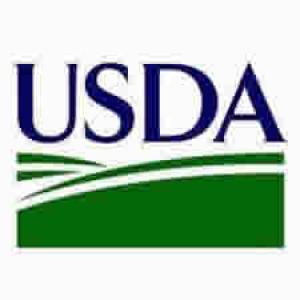 |
Gain Report: Government of Nigeria Signed Plant Variety Protection Bill into Law– June 28 2021, NigeriaPosted: 4 years ago |
Nigeria is the largest economy in Africa with a population projected to reach 219 million in July 2021. Agriculture contributes close to 22% of the National Gross Domestic Product (GDP) as of first quarter, 2021. The role of the private sector has been vital to transitioning and growing Nigeria’s seed industry. Public and private sector participation in breeding and variety release has led to an increase in the release varieties across the country. Currently, the private sector constitutes 13% of variety releases in the seed market, with the public seed sector constituting the remaining 87%. The National Agricultural Seeds Council (NASC) was established in December 2007 as an Agency of the Federal Ministry of Agriculture and Rural Development in line with the provisions of National Agricultural Seeds Act No. 72 of 1992. The National Agricultural Seeds Council Act, 2019 was approved because the National Seeds Act laws of the Federal Republic of Nigeria, 2004 was repealed. The 2019 Act consolidates the establishment of the National Agricultural Seeds Council with the responsibility to promote and stimulate the development of a dependable seed industry, regulate and control seed production, support variety registration and release, protect farmers from the sale of poor-quality seed, and facilitate the production and marketing of high-quality seeds. The Act also conforms with the ECOWAS Seed Regulation -Nigeria is a member of the regional body. Furthermore, the Act also highlights the standards for seed certification in compliance with ECOWAS regulations and institutes a National Seed Catalogue with ECOWAS Catalogue of Plant species and varieties as reference. Nigeria’s growing population and its implications for economic development makes the country a leader in sub-Saharan Africa. The country is a prime destination for foreign investment –also attracting scientists, breeders, farmers, and other agricultural stakeholders. According to the National Agricultural Seeds Council (NASC), there are 157 registered seed companies in Nigeria, with the majority producing fewer than 1,000 metric tons of seeds annually. The Seed Entrepreneurs Association of Nigeria is the country’s main private seed trading body, with approximately 67 registered members. The new seed law gives breeders intellectual property rights over a new plant variety with exclusive rights to commercialize seeds and propagate material. This latest development will encourage national and multinational investments in the seed sector. Highlights of the Act The Act contains especially important segments that highlights the active participation of private sectors, multinationals, and inter-governmental agencies in the Nigerian seeds industry. The Act also has a detailed process of procuring breeder’s right in a transparent way. In the past, the lack of a PVP law in Nigeria, limited the country’s ability to harness opportunities embedded in its seed sector. This was a major challenge, which left farmers with low-quality and adulterated seeds and seedlings that portend uncertainty for agricultural productivity and food security. The Act contains 11 distinct sections. They are.
Major Elements of the Act The Plant Variety Protection Act, 2021 protects plant varieties, encourages investment in plant breeding and crop variety development and establishes a Plant Variety Protection Office for the promotion of increased staple crop productivity for smallholder farmers in Nigeria. The Plant Variety Protection Office is domiciled in the National Agricultural Seeds Council and will be administered by Registrar who will be recommended to the Board by NASC Director General. The Office “shall” be responsible for the following:
Objectives of the Act
Plant Variety Protection Advisory Committee The Advisory Committee comprises of relevant stakeholders in the seeds value chain including:
The Committee will perform the following roles: Through the DG of NASC, advise the Minister of Agriculture on the enforcement of this Act.
Varieties to be Protected. The protection of varieties under this Act “shall” apply to all plant genera and species. The following rights “shall” be protected.
Application for Plant Variety Protection Rights A breeder of a new variety may apply for the grant of a breeder’s right for the variety. The application for breeder’s right relating to a variety should contain:
What Nigeria Stands to Gain Nigeria’s Plant Variety Protection Law will provide legal intellectual property rights to plant breeders who develop new and improved seeds for increased crop production. An industry source noted that, the PVP law will help the country move from generating $0 from seeds export to generating well over $2.0 billion from seeds export within the first five years. Nigeria’s population is projected to nearly double to 400 million by 2050. As a result, there is urgency in putting together the steps to enhance strategic investments in the agriculture sector –especially by providing high-quality seeds to farmers to boost food production and strengthen national food security. The PVP law will give breeders and investors in the seed sector the assurance and confidence to invest in Nigeria while addressing the current issues of unacceptably low yield per hectare produced by farmers. As a country that envisions economic growth through agricultural value chains, enhancing productivity is a growth game-changer. The law creates a structure for protecting plant varieties in Nigeria and while providing recognition and proper renumeration for the breeders who developed these varieties. Furthermore, the law creates an enabling environment for agricultural research conducted by the private sector. This situation will lead to a competitive agricultural sector. Implication of the Law to U.S Seeds Breeders The new seed law will attract new investments into the country’s seed industry and bridge the production gaps by encouraging plant breeders to develop improved varieties. Currently, Corteva Agriscience, a US agriculture solutions provider has launched operations in Nigeria. The company continues to expand its market reach while contributing to growth of the country’s agriculture sector. Corteva has developed collaborative relationships with local partners -Pioneer Seeds Ltd and Flour Mills of Nigeria Plc to develop hybrid corn seed in Nigeria. Additionally, Corteva is also partnering with a $60 million USAID project to support smallholder farmers. Corteva stands to gain from Nigeria’s the new PVP laws. conclusion It is a new dawn in the Nigeria seed industry. The existence of a legal framework and administrative structure as enshrined in the PVP law will spur private sector investment in developing new and novel varieties. Furthermore, Nigeria’s evolving seed sector will foster better access to high-quality varieties, which will play a key role in boosting agricultural production. |
Related News

|
Nigerian Institute of Management (Chartered) holds 2016 distinguished Lecture Series The Nigerian Institute of Management (Chartered) will on Thursday, July 14 hold its 2016 Distinguished Management Lecture Series at the Institute's Management House, in Lagos.
The President and Chairman of Council of the Institute, Prof. Munzali Jibril, in a statement said the theme of [Read more]
|
Posted: 9 years ago |

|
SGF inaugurates Technical, Vocational Training Committee Sen. Anyim Pius Anyim, the Secretary to the Government of the Federation, last week inaugurated the National Partnership Committee of Government and Private Sector on Technical and Vocational Education and Training (TVET).
The 18-member committee has membership from government and NGOs, wit [Read more]
|
Posted: 13 years ago |

|
Dangote Advocates Vocational/Technical Education for Industrial Growth
The President of Dangote Group, Alhaji Aliko Dangote has called on Nigeria and other developing countries to lay emphasis on technical and vocational education as a tool for accelerated industrial development and growth.
Speaking at the Global Education First Initiative Anniversary & Lear [Read more]
|
Posted: 12 years ago |



